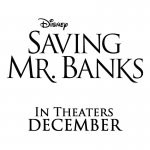Latest Updates
Total Updates: 65
Amazon from Amazon
-
added the US Blu-ray release date of March 18, 2014
-
-
added the US DVD release date of March 18, 2014
-
Walt Disney Pictures from Walt Disney Studios
-
added TV Spot #2 to trailers & videos
-
-
added TV Spot #1 to trailers & videos
-
-
added Video Clip: Save to trailers & videos
-
-
added Video Clip: Story to trailers & videos
-
-
added Video Clip: Responsible to trailers & videos
-
Amazon from Amazon
-
added the U.S. soundtrack release date of December 10, 2013
-
Walt Disney Pictures from Walt Disney Studios
-
added Theatrical Trailer to trailers & videos
-
-
added photos to the film's gallery
-
-
added a link from facebook.com
-
-
added a synopsis
-
When Walt Disney’s daughters begged him to make a movie of their favorite book, P.L. Travers’ “Mary Poppins,” he made them a promise—one that he didn’t realize would take 20 years to keep. In his quest to obtain the rights, Walt comes up against a curmudgeonly, uncompromising writer who has absolutely no intention of letting her beloved magical nanny get mauled by the Hollywood machine. But, as the books stop selling and money grows short, Travers reluctantly agrees to go to Los Angeles to hear Disney’s plans for the adaptation.
For those two short weeks in 1961, Walt Disney pulls out all the stops. Armed with imaginative storyboards and chirpy songs from the talented Sherman brothers, Walt launches an all-out onslaught on P.L. Travers, but the prickly author doesn’t budge. He soon begins to watch helplessly as Travers becomes increasingly immovable and the rights begin to move further away from his grasp.
It is only when he reaches into his own childhood that Walt discovers the truth about the ghosts that haunt her, and together they set Mary Poppins free to ultimately make one of the most endearing films in cinematic history.
-
added the U.S. film release date of December 13, 2013
-
Film Ratings from Film|Ratings
-
changed the production status to Complete
-
-
set the MPAA rating to PG-13 for thematic elements including some unsettling images
-
Walt Disney Pictures from Walt Disney Studios
-
changed the US film release date from TBA 2013 to December 20, 2013
-
-
added a synopsis
-
Tom Hanks will essay the role of the legendary Walt Disney alongside Emma Thompson in the role of the prickly novelist, P.L. Travers. Before actually signing away the book’s rights, Travers’ demands for contractual script and character control circumvent not only Disney’s vision for the film adaptation, but also those of the creative team of screenwriter Don DaGradi and sibling composers Richard and Robert Sherman, whose original score and song (Chim-Chim-Cher-ee) would go on to win Oscars at the 1965 ceremonies.
When Travers travels from London to Hollywood in 1961 to finally discuss Disney’s desire to bring her beloved character to the motion picture screen (a quest he began in the 1940s as a promise to his two daughters), Disney meets a prim, uncompromising sexagenarian not only suspect of the impresario’s concept for the film, but a woman struggling with her own past. During her stay in California, Travers’ reflects back on her childhood in 1906 Australia, a trying time for her family which not only molded her aspirations to write, but one that also inspired the characters in her 1934 book.
None more so than the one person whom she loved and admired more than any other—her caring father, Travers Goff, a tormented banker who, before his untimely death that same year, instills the youngster with both affection and enlightenment (and would be the muse for the story’s patriarch, Mr. Banks, the sole character that the famous nanny comes to aide). While reluctant to grant Disney the film rights, Travers comes to realize that the acclaimed Hollywood storyteller has his own motives for wanting to make the film—which, like the author, hints at the relationship he shared with his own father in the early 20th Century Midwest.
-
changed the US film release date from TBA to TBA 2013
-
-
added family as genre
-
-
added BBC Films as a production company
-
-
added Hopscotch Pictures as a production company
-












